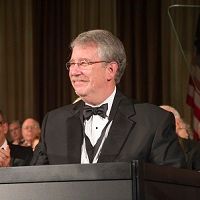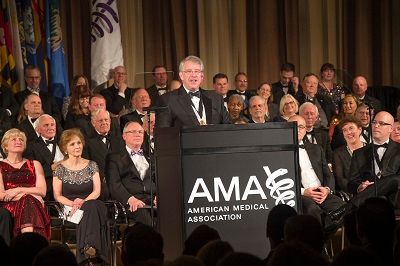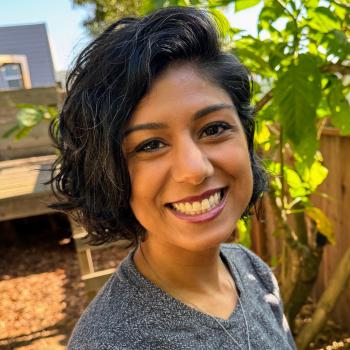Article
Andy Gurman, MD, Takes Reins as AMA President
Author(s):
Taking over from Steven Stack, MD, Pennsylvania hand surgeon Andrew Gurman, MD, is now the president of the American Medical Association. In an interview he discusses his goals.

The American Medical Association’s new president, Andrew W. Gurman, MD, known for his affability and quick wit, is not one to seek out controversy.
In an interview before being sworn in this week as the AMA’s annual meeting in Chicago, IL, Gurman said he has no agenda for his tenure at the top of the organization.
“I do whatever the AMA needs me to do,” said Gurman, an orthopedic hand surgeon from Hollidaysburg, PA, who has a solo practice.
But he clearly loves being a physician and is eager to take on the presidency.
He was asked if he agrees that physicians in general are more burned out than ever. A repeating theme of many who spoke at the meeting was that practicing medicine is just not as enjoyable as it once was—due to increasing payment reforms by regulators and insurance companies that add to physicians’ time and decrease their autonomy.
“Is it less fun?” Gurman said, “I don’t feel that way—it is still incredibly rewarding work to interact with people, to help them.”
Though he started his medical career with an interest in immunology during a rotation in orthopedics “I got hooked on hand surgery, I liked the challenge of the work.”
Early on, he said, “I saw what could happen when you replaced knuckles and a patient went from having a hand with fingers that went every which way to a functioning hand.” Many of his most satisfying cases have been patients with hands mangled in industrial accidents whose injuries he was able to repair.
That's a good day for a surgeon, he said.
Though he knows the AMA duties will take much of his time, Gurman said “I’m not leaving clinical practice—no way.”
He will go back to it fulltime when his AMA duties wind down, he said.

Meanwhile, he feels being an active clinician gives him credibility, both with AMA members and the entities the AMA needs to take on to accomplish its near-term goals.
Those goals are broad and ambitious and include “improving health outcomes for Americans living with pre-diabetes and hypertension; accelerate change in medical education and prepare students for today’s health care system; and enhance physician satisfaction and practice sustainability,” according to an AMA statement.
Though physicians’ anger over the frustration of using existing electronic health records was a major topic of conversation at the meeting, Gurman said he had little to add other than no one could make him use one.
“I don’t have an EHR,” he said. Due to the fact that he runs his own practice he found it easier and cheaper just to forgo the enhanced payments he would get under the federal “meaningful use” regulations for converting to electronic records. “I just take the penalties,” he said.
As a solo practitioner he is acutely aware that the new Centers for Medicare and Medicaid Services (CMS) payment system due to take effect in January raises particular concerns for physicians in small practices, as well as for those in rural settings, he said. That system is called the Medicare Access and CHIP Reauthorization Act or MACRA.
He said he was encouraged that in an address to the AMA House of Delegates on June 12, Andy Slavitt, the acting director of CMS promised to focus on the needs of such practitioners, including being open to extending deadlines for these physicians to comply with the new regulations.
Asked what he most looks forward to during his term, Gurman said “It’s tremendously satisfying to do my part and have some custody of the profession.”
He added, “The issues are so broad, and the challenges are diverse—its so much more expansive than hand surgery.”
(Photos show Gurman addressing AMA delegates at his inauguration , photos courtesy of the AMA)




